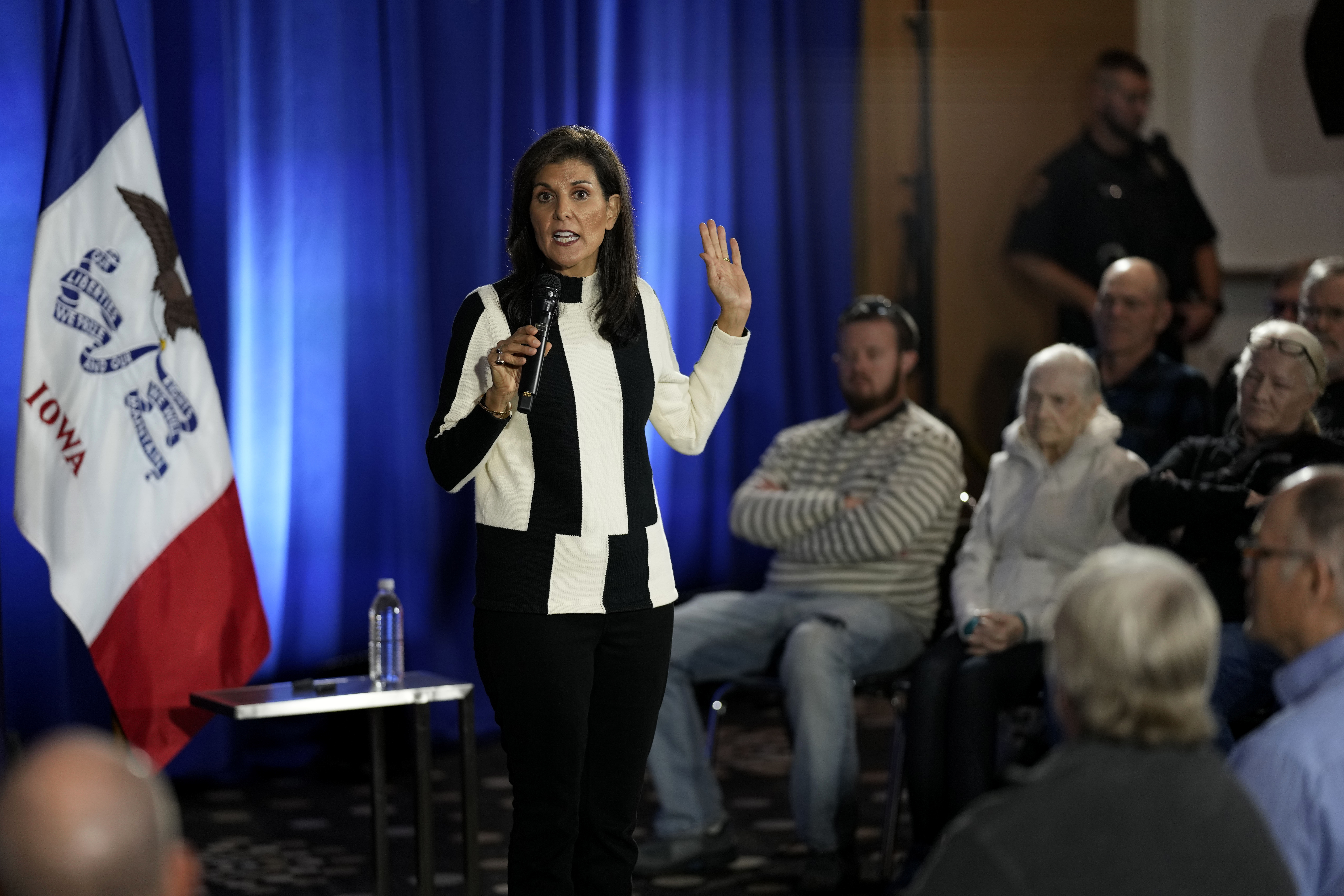CBS poll: Haley gaining on Trump in New Hampshire
Haley recently received a coveted endorsement from Gov. Chris Sununu.


Nikki Haley is closing the gap on former President Donald Trump in a key early voting state.
A CBS News/YouGov poll released Sunday found that 29% of likely GOP primary voters in New Hampshire would vote for Haley, while 44% said they’re backing Trump. It’s the latest good news for Haley out of the Granite State, where she recently received a coveted endorsement from Gov. Chris Sununu, who has pledged to put “110 percent” behind the former South Carolina governor in the run-up to the state’s Jan. 23 primary.
New Hampshire voters who were surveyed also view Haley as the most “likable” and “reasonable” candidate in the primary race, and 53% percent describe her as “prepared,” compared to 54% for Trump.
Sununu's endorsement and Haley's rise in the state have been a blow to New Jersey Gov. Chris Christie, who has staked his campaign's success or failure on the first-in-the-nation primary state. But the poll brought a glimmer of good news for Christie — his 10% among New Hampshire voters means he has unofficially qualified for an invite to CNN’s Jan. 21 debate in New Hampshire, according to POLITICO's analysis.
Though support from Trump is still strong in the state, Sununu said Sunday that voters are still waiting to make their decisions.
“A lot of the decisions won't be made really until the last couple of weeks and in New Hampshire, it's all about results,” the Republican governor said during an interview alongside Haley that aired on ABC’s “This Week.”
In Iowa, however, Trump still holds a runaway lead — and Haley lags behind Florida Gov. Ron DeSantis, who boasts his own endorsement from Iowa Gov. Kim Reynolds. According to the poll, 58% of likely caucus-goers support Trump, while 22% back DeSantis and 13% say they’re with Haley.
The CBS poll surveyed 855 registered voters in New Hampshire and 1,054 in Iowa from Dec. 8 to Dec. 15. Respondents in each state were selected from different online panels, and the results among likely Republican caucus goers and primary voters had a margin of error of +/-6.1 points in Iowa and +/-5.5 points in New Hampshire.












